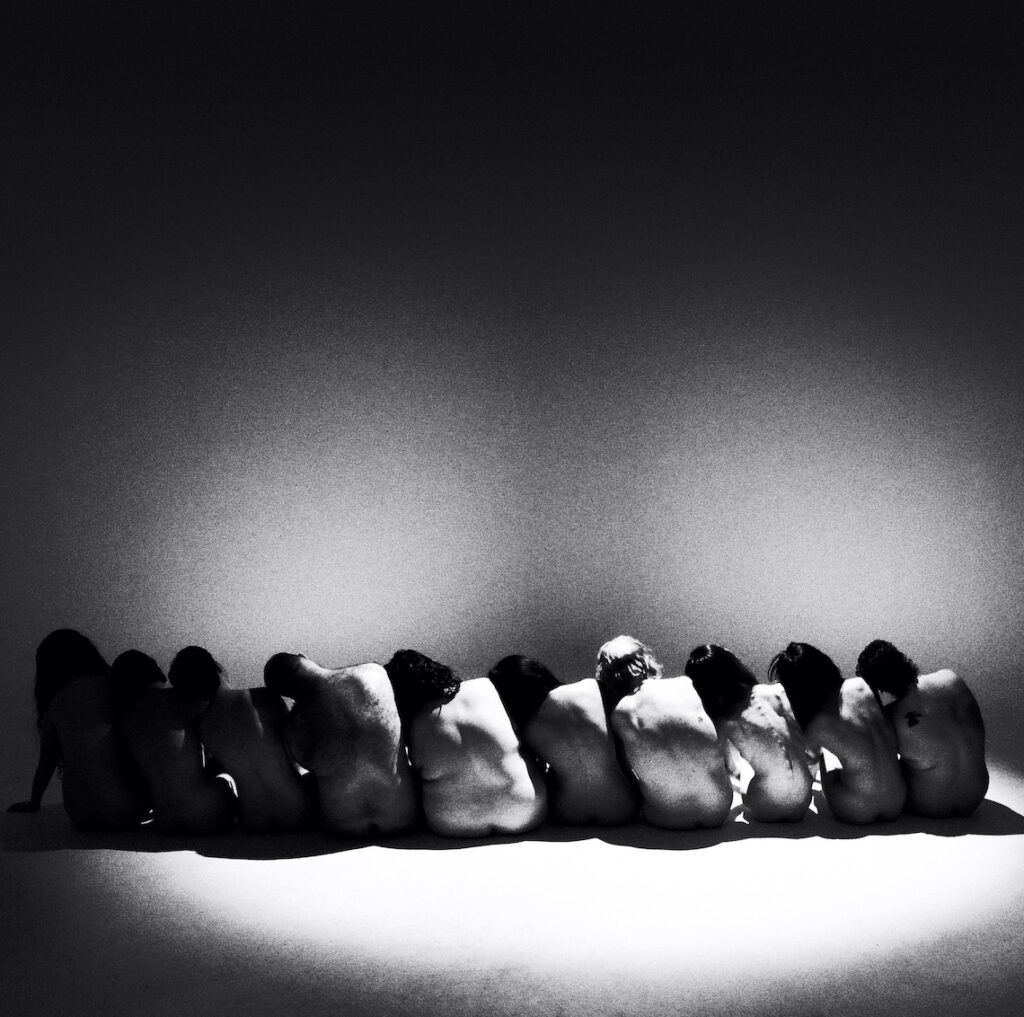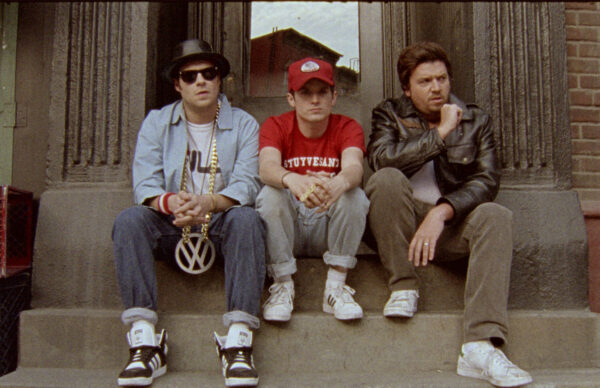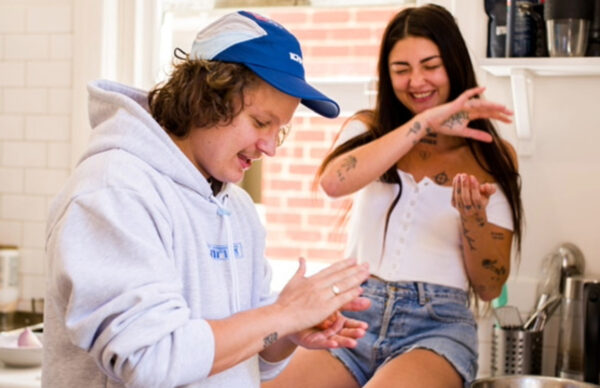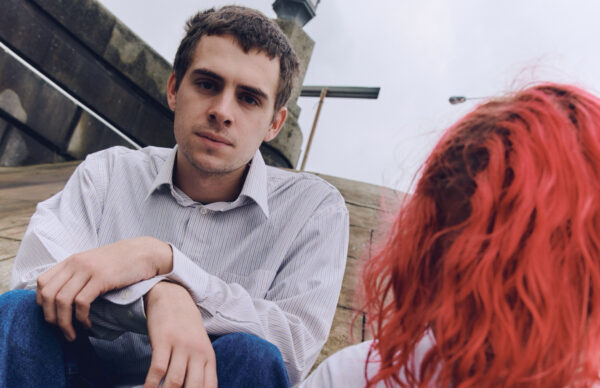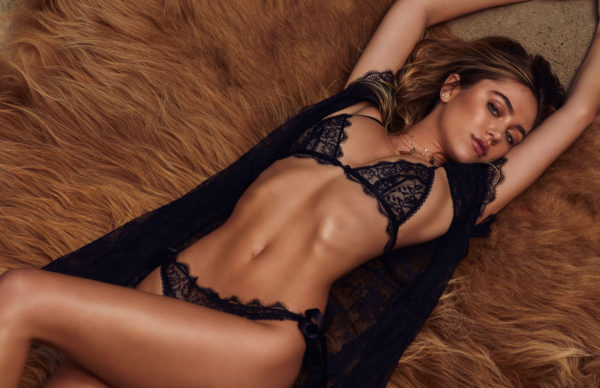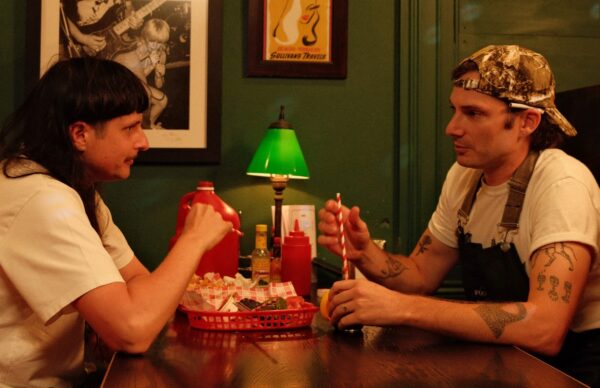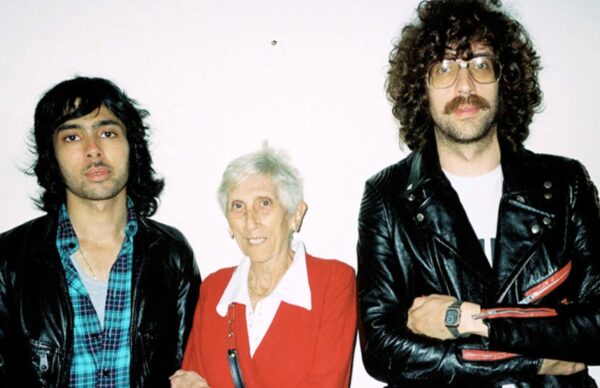A lot to learn from this record…
You probably know Reuben Styles as one-half of one of the nation’s biggest party duos Peking Duk. But if you’ve been paying attention, you’d know there’s far more to him than meets the eye (or eardrum). The bloke has got a heart of gold, and he’s dedicated his very artistry to helping to promote the dialogue about mental health in Australia, all through his solo project Y.O.G.A.
Rooted in the mantra of ‘You’re Only Great Always,’ the Sydney-based muso has already encouraged countless souls to open up on their struggles with his debut EP last year. And now, with a follow up out today in You’re Only Great Always II, old mate seems to have no intention of slowing down, almost hell-bent on doing whatever he can to let everyone in Australia know that they’re not alone, and that they’re great, always.
So, we figured we’d catch up with Reuben to chat about the new EP, the stories that inspired it and the journey of the Y.O.G.A. project so far. But before that, take our hand as we dive into it in all of its ins and outs, its passion, care and pure intentions below.
Beginning with the transcendent ‘Intro’, Styles puts his ambient rock sensibilities to the forefront as he launches the tale of woes that is You’re Only Great Always II. From the get-go you’re enveloped by lush harmonies, pastel blues and pinks meshing and swirling before those western-style guitar strums make their way in.
It’s almost like the intro scene of a Spaghetti Western from the 60s, except, instead of the stereotypes and toxic masculinity archetypes, it’s underpinned by a wealth of understanding, a pot of feeling as the harmonies make their way back into the forefront and drown the guitars out, letting you know that such archetypes don’t have a place on this record; and that for the next eight songs, you’ll be engaging in some proper soul searching.
And that exploration is immediately embarked upon in ‘Ripple,’ Styles’ Cobain-like vocals floating amongst the grungy tapestry of guitars and drum-beats. The signature riff of the track almost acts as an anchor for the Sydney muso, his alternating of modality and chordal structure rooted in it as he sets off on his journey to self-realisation. It continues to build and build throughout, culminating in a gentle fade into silence, one that holds and allows you to sit with your thoughts for that extra, almost never-ending second.
It plays perfectly with the next cut, Y.O.G.A. following up the gentle waves started by ‘Ripple’ in ‘Black Night Lullaby,’ the existential soul-spell acting as a tribute to a best mate who had suffered with mental health issues, the types of issues the Y.O.G.A. project is trying so desperately to tackle head-on.
Naturally, it’s one of the most emotional tracks on the project, Styles using all of the tools at his disposal, from his moving falsetto to guitar-plucking skills, to make sense of how and why he lost his close mate. It all comes to fruition on the hook, the abandonment of distortion symbolising Styles’ total exploration into the notions of depression and how someone who may seem full of joy on the outside can be crumbling on the inside, so much so that they resort to the most extreme and final solutions when they’re at their lowest moments.
His singing of lyrics like ‘Here I am, on the ground/ here without you now’ just drives the pain forward. It’s a cautionary tale and tribute, reminding us to check in on our mates while honouring a soul who was taken from us far too soon.
But Styles isn’t just exploring his own past with this record, looking into our own with ‘See It In Your Eyes.’ The track listens like a hazy fever-dream of euphoria and emotion, Styles continuing to show off his acoustic prowess as he leans toward his ballad inclinations. Again, the hook is sublime here, the title lyric listening like a sunrise of sonics as the confessed party-track lover lets us know that while we may have our guards up, he sees through it all.
The accompanying video of Reuben making his way through Sydney on rollerblades adds a tone of innocence to the track that fits wonderfully, juxtaposing the heavy subject matter with young wonderment that acts as a welcome reprieve from the existential questioning, however momentary it may be.
https://www.youtube.com/watch?v=zXQVIFNIMfE
It appears to be a formula the Peking Duk wizard has more than mastered, tracks like ‘The Boat I Left’ and ‘I Need Change’ both allowing us to bear witness of his vocal synchronicity with the acoustic guitar. But the two still have blissful differences between them, ‘The Boat I Left’ leaning toward Styles’ ambient inclinations with chordal instrumental sections while ‘I Need Change’ gravitates toward the gospel and more spiritual elements of the Y.O.G.A sonic palette.
They both set the stage perfectly for the aptly named ‘Pain Makes Us Alive,’ the acoustic spell listening like a fever-dream of hypnotism and rigour. The guitar plucking that makes for the main sonic backing of the track is almost anxiety-inducing in its execution, Styles drawing from the Eastern parts of the world as he plays with the soul of the Durag.
His vocals are more whisper-like in this instance, swapping out his falsetto utterances for gentle, but harsh vocalisations that blend perfectly into the mix as he communicates the inevitability of pain when striving for happiness. It leaves you with the final message that no matter what you do, to experience happiness you must experience pain, to soar high you must journey into the depths.
Ending the sophomore effort with ‘Wolfer & the Dove,’ Styles concludes with the importance of acceptance; not just of others but oneself. The meditative arpeggio and juxtaposed guitars really affirm this point, coming full circle with the duality of ‘Intro’ as Styles outlines an individual’s acceptance of themself, and what they’re going through.
It’s a sentiment mirrored in the visuals for the track, following a rural sheep shearer that embraces all the parts of her identity in a wonderful aura. It’s a beautiful moment, and with the addition of Murphi Field’s vocals, it’s totally transcendent.
https://www.youtube.com/watch?v=i0GyK3hWJ48&list=RDEMbMur-Z2JSD2QVCraXnt46w&start_radio=1
Now, check out our full chat with Reuben. Fair warning, it’s bloody heartwarming to say the least, and you best have a box of tissues on standby for it.
This is a really personal and cathartic body of work. Is there any anxiety in having it released?
Absolutely. There’s something spooky about releasing music about my personal story. Songwriting has always been about telling stories for me. But one of the songs, ‘Black Night Lullaby’ is about one of my best friends who recently passed away. I had written songs about friends who’d passed away in the past, but I’d never thought about ever releasing them. It’s a really good way to deal with the pain of the loss, as clichè as that can sound, while showing your love for that person in something completely for them and you.
It’s funny, I saw this Disney film, Coco and after watching it I realised that whenever someone passes, it’s up to their friends and family and the people that knew them to keep them alive, essentially eternally.
And so, after watching that movie I was like, “You know what, maybe I could release that song I wrote about my mate.” And now here we are, I’m anxious as hell and this music’s about to come out and I’m freaking out [laughs].
Have you always had this side to you? Or did this desire to write about mental health and such only happened after being Peking Duk?
The party tracks are the foundation of who I am as a person, and it will always be that way. Like even before this call, I was doing a Y.O.G.A mix for triple j. I can’t hide from my love for party music, but it’s just nice having an opposite side with the Y.O.G.A. stuff. The yin and yang of my studio sessions are me rocking up one day and just making boot and scoot bangers, and then the next day I can do ambient, country music.
Now I feel like there are no rules. It’s really nice now when I’m working on Duk songs as well. There aren’t any rules there either now that Adam and I are doing side projects. It did start feeling like there were boundaries and rules, which of course makes sense because you want to deliver things that Duk fans would like.
Just so many more doors have opened to us musically. And then I just love making ambient rock music. The music that I love apart from hip hop is either dance or rock. So now to be doing live band music and recording live drums is just something I’ve been wanting to do since I was a kid.
Similarly to your first EP, it’s titled You’re Only Great Always.’ What’s the story behind that phrase? When did it come into your life?
I lost one of my best mates when I was 17, as did Adam. I’ve always wondered how it could possibly happen. I’m starting to understand how, but I don’t think I ever understood why. It’s a strong problem in Australia. Like one of my friends who was extremely depressed was on a job site and his tradie workmates were like, “Mate, what’s the matter with you? Put a smile on your dial. Don’t you know there are starving kids in Africa?”
I absolutely hate that line.
It’s just so classically Aussie, it’s like telling someone to “Drink a cup of concrete and harden the fuck up.” And it’s like ‘Okay, cool, that’s really relevant to how I feel.’ It’s funny, in America everyone’s really open about how they see their therapist. I think there’s something we can really learn from that, that it’s good to acknowledge and it’s not something you should hide.
And that’s something which I didn’t see with my best mate when I was 17. He just looked so happy on the outside. And so, I’ve just been asking myself since forever “Well, shit. Why would he put on a brave face if it was that bad? Why would he look happy on the outside?”
So when this new project was underway, I was thinking about how there’s a whole bunch of things in the social media realm which have created crazy problems for kids. I thought it’d be cool with this project to dedicate the Instagram to not only sharing the music, but also sharing mental health stories from friends and other musicians and people.
You start the EP with ‘Intro’ which goes from these orchestral voices to this swashbuckling sea shanty and then the two sort of meet in the middle. Listening to it I just assumed it was exploring the traditional notions of masculinity with the undercurrents of mental health for the voices. Is that accurate?
Dude, that is such a great take on that intro. I guess the big shining guitar does get buried by the other voices. Yeah, that’s a really cool take on it. For me, I’ve not seen it in that light yet, and I can’t wait to listen to it after this. That’s so good.
‘Black Night Lullaby’ is a super personal song obviously where you address the death of a loved one. With death, it’s so final-
I think it also makes it less final in a way. It isn’t super apparent, but they still influence us every day of our lives. They can still be that voice on your shoulder saying, “Nah, don’t fucking do that,” or “Just go for it.”
Did you get some sort of closure in writing that song?
For sure. It was such a soothing song to create and sing. Now when listening to it, it still hurts, but afterwards, it’s a nice experience that I enjoy doing. After he passed there was a song which I listened to, which even to this day, I get emotional listening to. I just go, “Ah, fuck.” And even thinking about the song… It’s crazy, dude. The power of some songs. ‘Black Night Lullaby’ is not quite in that realm of my being able to listen to it and not tear up yet, because I know it’s me that made the song. But there’s more closure than ever coming, knowing that it’s about to get released. But right now, I don’t feel it.
You’ve also got ‘Pain Makes Us Alive’ which is a hell of a song title. Is pain beautiful? Or can it be perceived that way?
Absolutely. To feel pain you have to experience an emotion that you wouldn’t get to otherwise. Having lows and suffering from pain lets you know what it’s like to experience happiness. And so, if you don’t have lows, you don’t appreciate highs. If you don’t feel pain, you don’t feel happiness. ‘Pain Makes Us Alive’ is on that tip of being broken and then being rebuilt to become stronger than before.
There’s a really cool analogy for being broken and rebuilt with pottery in Japan. The art of kintsugi is where they’ll break a plate or ceramic, and so they get the pieces and put them back together with a gold resin. And so, after it’s been rebuilt, it’s way more beautiful than before. And I think there’s something about that which really resonates with humans. It’s so easy to just throw something broken away instead of putting in the effort to repair and rebuild. It just makes it more beautiful and stronger than it was before.
You end the EP with ‘Wolfer & The Dove’ which is one of your most visceral tracks on the album. It also highlights LGBTQI+ and mental health issues in rural communities that doesn’t get talked about nearly enough. What was the story behind that track?
I grew up with a bi mother and so she would pick me up from school on her motorbike with her bleached, spiky blonde hair. And I would just be like, “Mum, why didn’t you park a few blocks away?” But nah, I loved it, especially now that I can look back on it. At the time I was a kid and wanted just a normal mum, but I’m very lucky in hindsight, she was really cool.
I’ve just grown up with a strong influence of LGBTQI+ people in my family community. And Nicola, the lead actor in the clip, did a legendary dance at my wedding. He got in drag and did a full routine to this Italian song. And I sent out a shot of Fernet Branca to every single person at the wedding. It was so funny and outrageous. And I just knew there and then that he had to be in one of my videos.
Nicola just has this incredible spark on and off the stage. And so, it felt really natural. And I spoke to my mate Lucas, who is a videographer in the Snowy Mountains and he was like, “Okay, well I’ve got this a mate with a property in Cooma. He’s a sheep farmer.” And I showed him Nicola and it was perfect. I was like, “Perfect. This is Priscilla 2.0. It’s meant to be.”
Just getting broad now, since you’ve started this Y.O.G.A. journey, have you had any memorable moments or interactions with fans? Concerning mental health?
There have been around six or seven friends that have confidentially told me things that they’re going through. After a new Y.O.G.A. Instagram story, they’d DM me and say things like “Hey, this has meant so much to me. I haven’t actually told anyone else this, but I’ve just been diagnosed with this and I’m trying to figure out how to tell my parents” or something along those lines. And I’ve just been like, “Cool, wow.” Obviously not cool that they’ve got a diagnosis, but cool that it’s making people comfortable and less weirded out by that stuff.
Especially in Australia nowadays, you don’t think you’re crazy anymore if you get diagnosed with a mental illness. But it still does seem to be that way outside of the city. As soon as you hit those suburban areas, especially regional towns, you don’t want to be told you have a mental illness. And so, it’s nice getting those messages from people. On about six or seven occasions I’ve just stepped back and gone, “Wow.” And I’m literally tearing up right now. It means a lot getting messages like that.
What are you hoping Y.O.G.A. does for people? And what are your words of wisdom for those suffering from mental health problems?
All I can say is you’re not alone. You are one of the many millions of people suffering from similar things and there’s nothing weird about it at all. And try your best to let people know.
Y.O.G.A’s sophomore EP ‘You’re Only Great Always II’ is out now. You can buy/stream it here. You can also join his team for Mullets For Mental Health here.
